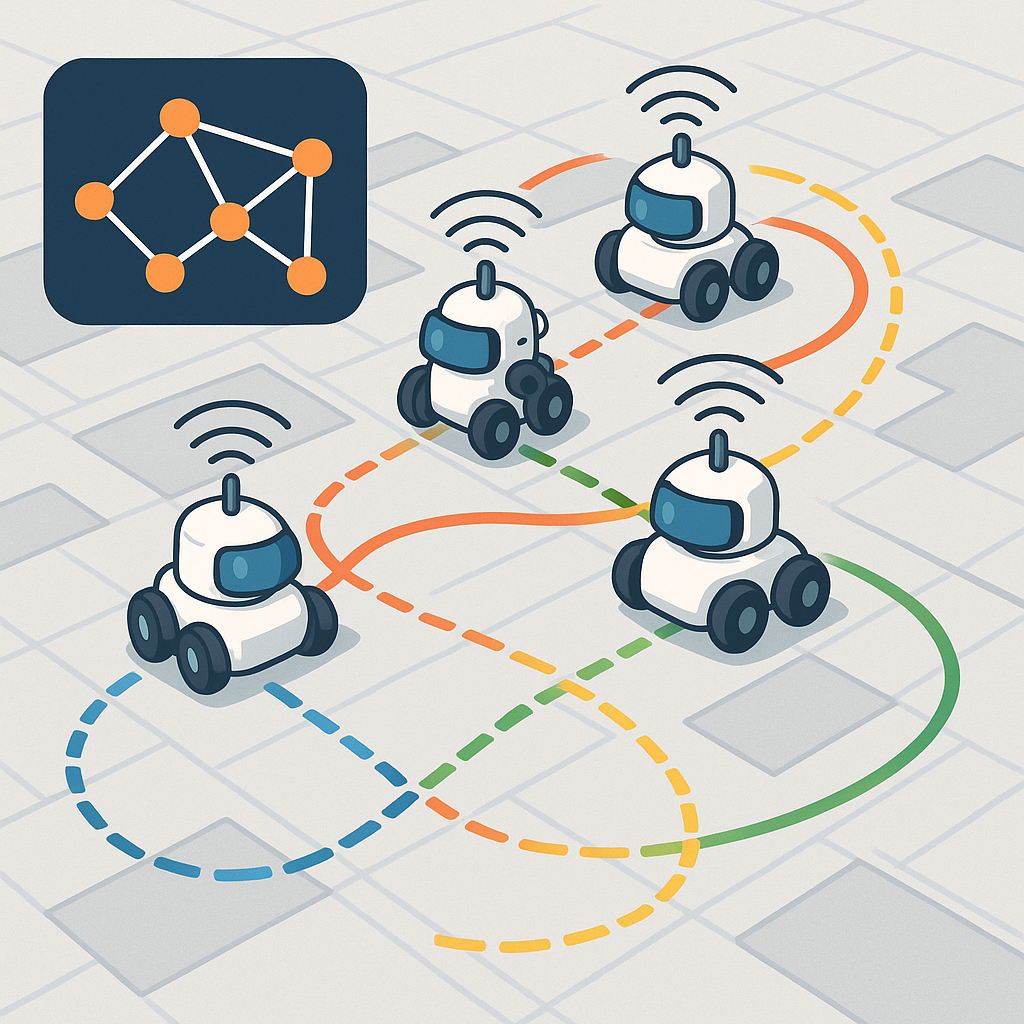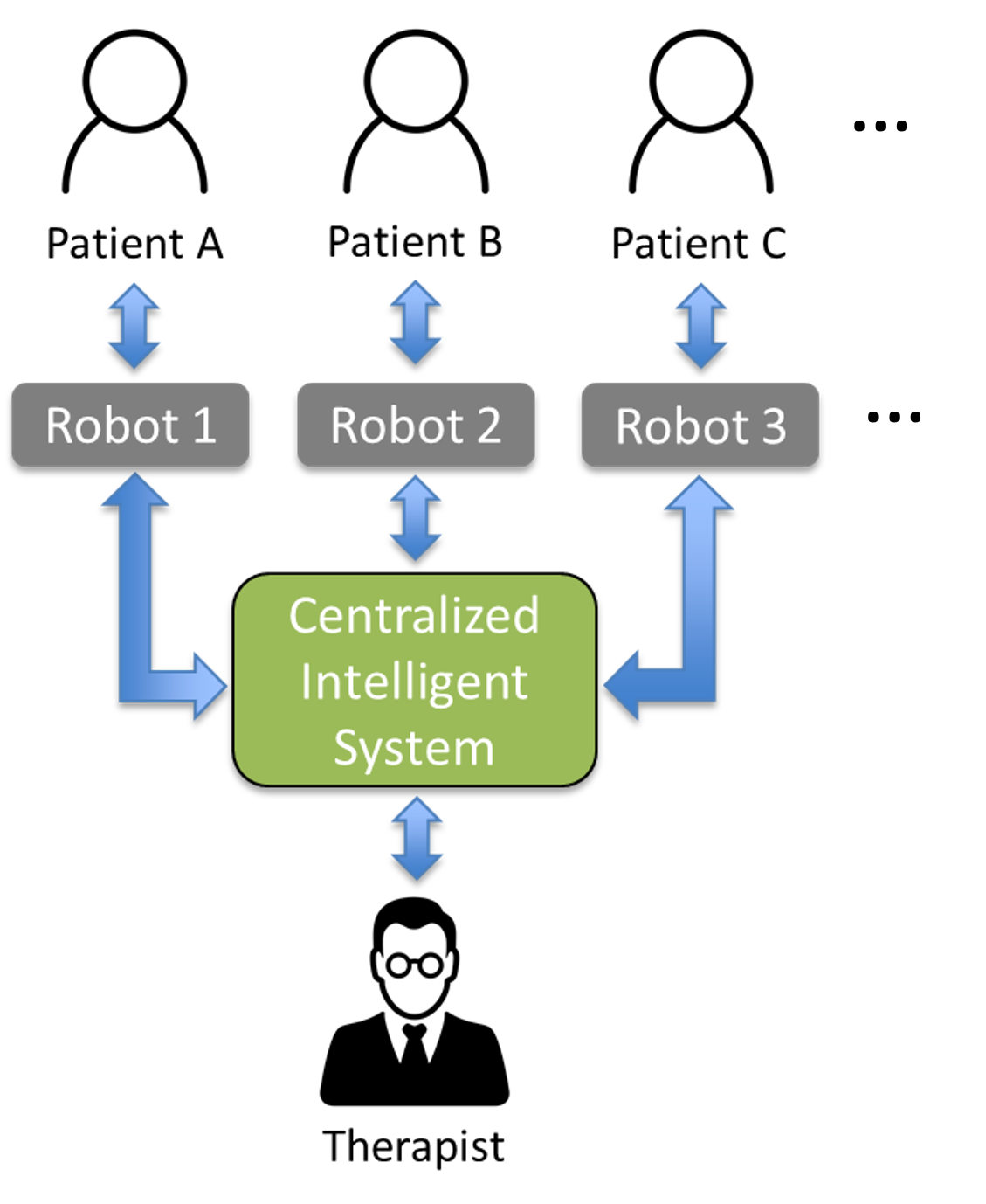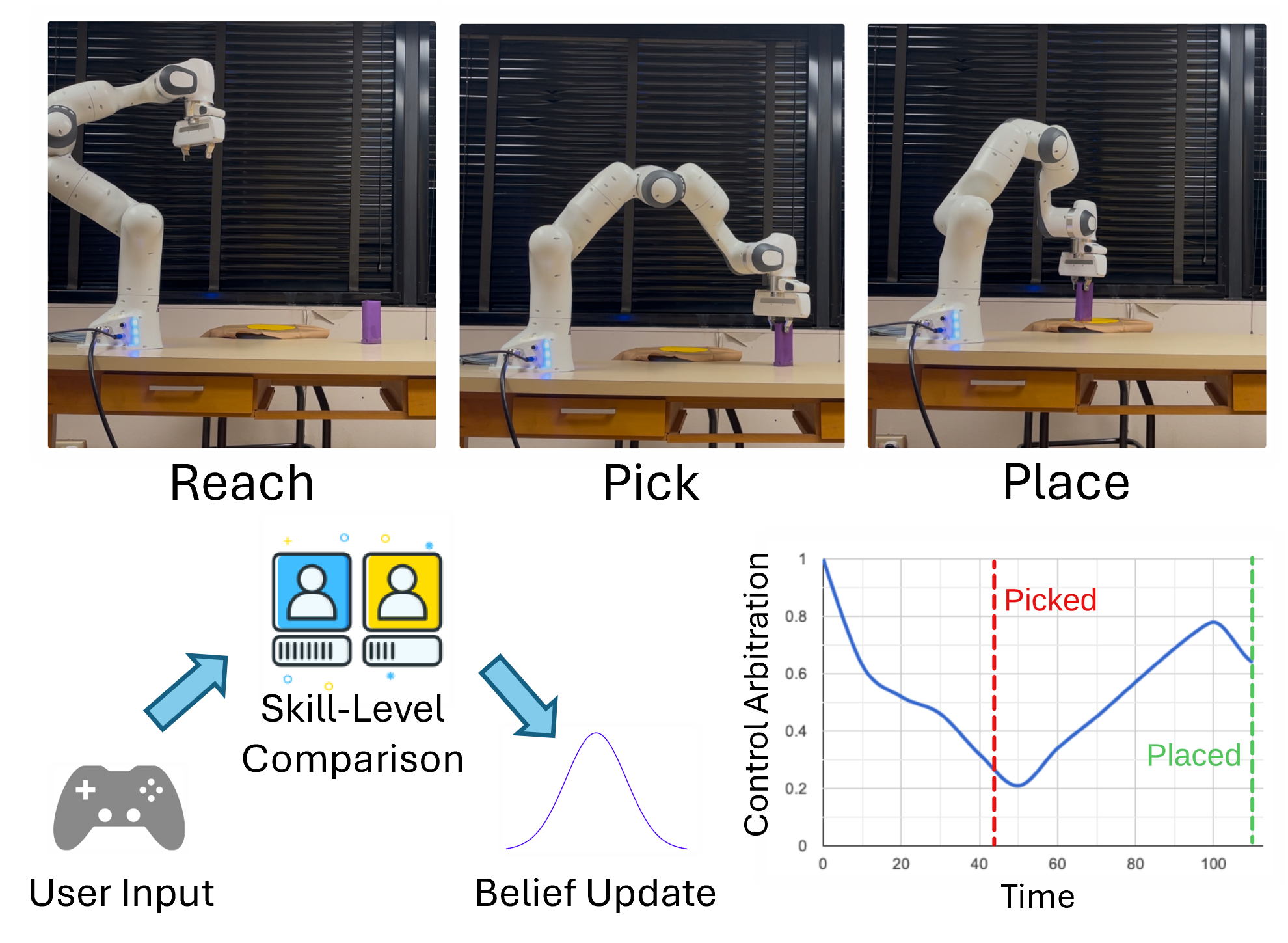Multi-Robot Coordinated Planning and Control
Multi-robot motion planning and control has been investigated for decades and is still an active research area due to the growing demand for both performance optimality and safety assurance. We developed learning-based methods and distributed model predictive control (DMPC) methods: 1) a gradient-based algorithm that leverages the alternating direction method of multipliers (ADMM) to decompose the team-level trajectory optimization into subproblems solved by individual robots. The algorithm also incorporates a discrete-time control barrier functions (CBF) as safety constraints to provide formal guarantee of collision avoidance; and 2) a sampling-based method that formulates multi-robot optimal control as probabilistic inference over graphical models and leverages belief propagation to achieve inference via distributed computation. We developed a distributed sampling-based model predictive control (MPC) algorithm based on the proposed framework, which obtains optimal controls via variational inference (VI).


